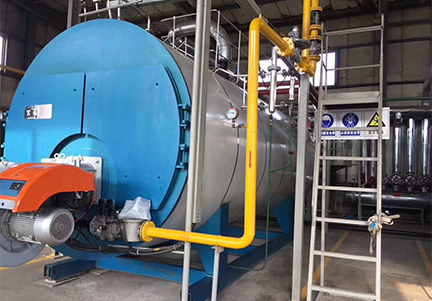Thermal Oil Heating Solutions for Food Processing Facilities and Their Operational Benefits
The Role of Thermal Oil Boilers in Food Processing Plants
In the ever-evolving food processing industry, the efficiency and reliability of the equipment used are paramount. One critical component that plays a significant role in this sector is the thermal oil boiler. These boilers are specifically designed to provide the necessary heat energy for various food processing applications, making them indispensable in many food plant operations.
Understanding Thermal Oil Boilers
Thermal oil boilers operate by heating a heat transfer fluid, commonly referred to as thermal oil. This fluid, unlike water, has a much higher boiling point and can circulate through the system without generating steam. This feature allows thermal oil systems to operate at higher temperatures and lower pressures, paving the way for more efficient heating and energy usage.
The configuration of a thermal oil boiler generally includes a combustion chamber where fuel is burned to generate heat. This heat is then transferred to the thermal oil circulating through the system, providing consistent and uniform temperature control necessary for food production processes.
Importance in Food Processing
In food processing plants, maintaining specific temperatures is crucial for several reasons, including ensuring food safety, enhancing flavor, and improving the overall quality of products. Thermal oil boilers are particularly utilized in processes such as
1. Cooking Many food products require precise temperature control for cooking or sterilization. Thermal oil systems provide accurate heat management to ensure food safety and quality.
2. Drying The food drying process demands reliable heat sources to remove moisture and extend shelf life without compromising nutritional content. Thermal oil boilers can efficiently manage the high temperatures required for effective drying.
thermal oil boiler for food plant product

3. Heating Processes From pasteurization to baking, many cooking methods rely on consistent heat delivery. The stability of thermal oil systems ensures that temperatures remain constant, crucial for maintaining product quality.
4. Heat Transfer for Equipment Thermal oil can be used to heat various equipment such as mixers, conveyors, and ovens, ensuring that the entire production line operates at optimal temperatures.
Advantages of Thermal Oil Boilers
1. Energy Efficiency One of the significant advantages of thermal oil boilers is their energy efficiency. They utilize heat recovery systems and advanced insulation techniques to minimize energy loss, translating to lower operational costs.
2. Safety Operating at lower pressures reduces the risk of accidents and explosions, making thermal oil boilers a safer option in food processing environments where hygiene and safety are paramount.
3. Versatility Thermal oil systems can be adapted to a wide range of applications in the food industry, making them suitable for diverse processes.
4. Minimal Maintenance With fewer components than traditional steam boilers, thermal oil systems often require less maintenance, increasing their reliability for continuous operation.
Conclusion
Thermal oil boilers have emerged as vital components in the food processing industry. Their ability to provide precise temperature control, coupled with energy efficiency and safety, makes them ideally suited for various cooking and heating applications. As the food industry continues to seek ways to improve productivity and sustainability, the demand for advanced thermal oil boiler systems is likely to grow, underscoring their importance in modern food manufacturing processes. Investing in these systems not only enhances operational efficiency but also ensures that food products meet the high standards of quality and safety that consumers expect today.
-
Electric Steam Boiler Manufacturers: Efficient Industrial SolutionsNewsAug.15,2025
-
Leading Electric Steam Boiler Manufacturers for IndustryNewsAug.14,2025
-
Buy Waste Heat Boilers: Custom, Efficient & Affordable SolutionsNewsAug.13,2025
-
Electric Steam Boiler Manufacturers | Industrial Power & EfficiencyNewsAug.12,2025
-
Electric Steam Boiler Manufacturers: Efficient & Reliable SolutionsNewsAug.11,2025
-
China Steam Boiler Price: Efficient Industrial Systems & BurnersNewsAug.10,2025

